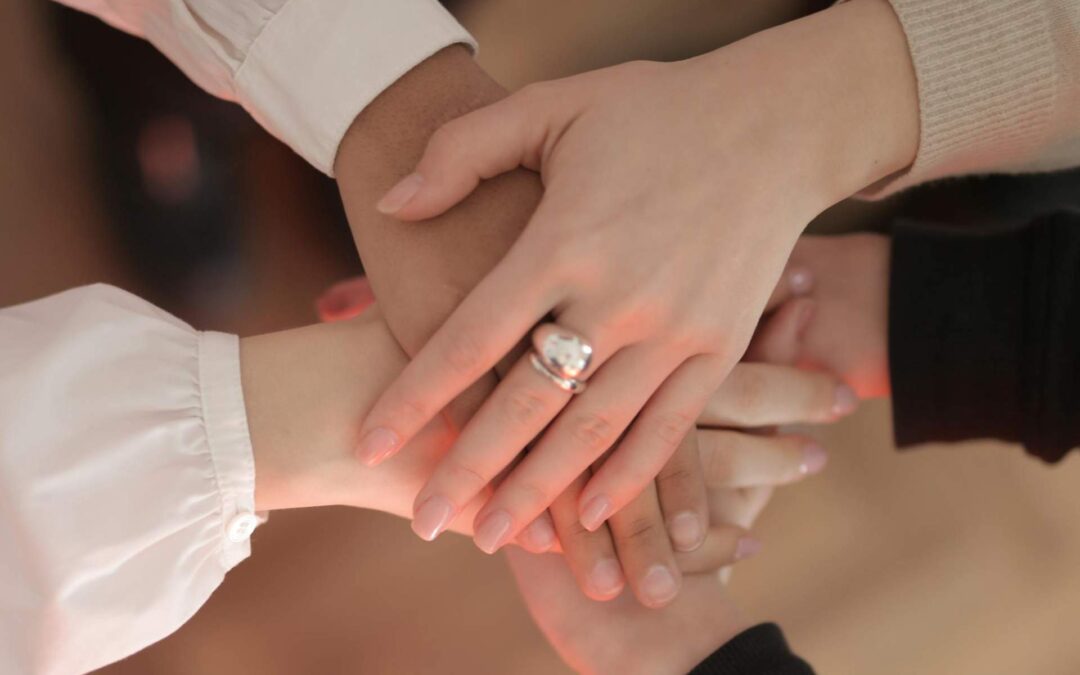Friendship is a universal experience. It is not a new concept as ancient texts show us plenty of friendship archetypes: life-long friends, enemies-to-friends, late-in-life friends. More modern archetypes can include work-friends, gym-friends, online-friends, etc. Friendship can be found in a sibling, cousin, or parent. Neighbors can become some of our best friends. We have seen the idea of friendship both remain unwavering from its roots as well as evolve and shift with societal developments.
So why do we fall into the pattern over and over? We invest time, energy, and emotion into knowing and being known by another person that, had the tides turned slightly differently the day you met, may not even be in your life at all. While family members can be friends, the bond of friendship holds different meanings. With family members, we do not always have a choice of how much time we spend together or how much they know about our personal life. Friendship is different because It is something we actively choose. Research shows friendship is good for our mental and physical health. They can soothe our mental health by providing a safe space for us to express ourselves. They can help attend to our physical health by being a walking-buddy or helping us heal after a surgery. The benefits are vast, and from a therapeutic standpoint, I focus on how a friendship dynamic empowers us to take agency in our lives.
Autonomy and agency are concepts we are thrust into understanding as we grow from childhood to adulthood. Perhaps one of our first memorable autonomous decisions is making our first friend. Finding a friend on the playground, in the classroom, and all the other places children gather, can impact a child’s personality for the better. The experience of making a friend teaches a child that they have control over their experience; “if I sit next to this person I can talk about art,” “if I play with this person we can practice basketball, ” “if I share my emotions with this person I am going to feel seen and heard.” A study from the National Institute of Health shows that children who are able to practice positive autonomy and relatedness skills in the form of making friends are able to feel more confident and competent in their decision making skills later in life (The Cascading Development of Autonomy and Relatedness From Adolescence to Adulthood by Oudekerk, Allen, Hessel, and Molloy).
There are many people who are reading this and are potentially feeling disheartened. They may not have had that agency as a child, and maybe even still do not have the image of friendship that they want. No need to lose hope. Countless studies show that it is never too late to establish friendships that not only help us form similar confidence and competence, but give us a feeling of belonging. Belonging is an important piece of the friendship puzzle. Without it, we would not experience depth and meaning in our friendships. When discussing this subject, Maya Angelou says “You are only free when you realize you belong no place—you belong every place—no place at all. The price is high. The reward is great.” Angelou is stating we should not mold and shift ourselves to be agreeable to meet the expectations of a new friend or fit in a friend group, rather show up as our authentic-self and experience the vulnerability and joy associated with someone autonomously choosing the truest form of you as a friend. When we feel secure in ourselves and bring our unedited version to a friendship, we find real belonging.
If you want to make a new friend where you can experience this sense of belonging, here is my number one tip: do the things that bring you joy and make friends with people who also occupy those spaces. Chances are you will have several things in common with those people! For example, I consistently attend a dance class every Monday morning. I developed my love of dance during the COVID-19 pandemic when I found some dance workouts on youtube and loved the way my mind and body felt after each workout. When the pandemic came to an end and we re-entered the world, I wanted to continue this new hobby and found this class. It was scary and vulnerable at first, I only had experience dancing by myself in my garage. But, I kept attending and felt more and more comfortable each week. Now I attend not only because I love dancing, but because I cannot imagine spending my Monday mornings without the community I have formed. The levels of friendship vary: there are the women who I catch up with while we warm up for class and share major life updates, there is the instructor who I feel friendly with and interact with on social media, and there is a friend who I get to have bookshop dates with as we learned overtime that we both love reading. That is a handful of people that I never would have had the chance to interact with had I not indulged in my love for dance.
So if you have a friend that gives you a sense of belonging for being your true self, remember that your experience with them is ultimately contributing to your mental health, physical health, and strengthening your skills in autonomy. If you do not have that friend, the time will come if you put yourself in spaces where you are surrounded by people with common interests. While companionship is already a great reward, you can reap infinite benefits when you invest your time and energy into a good friend.

